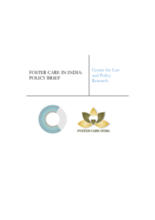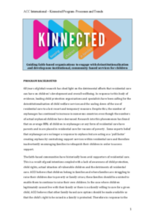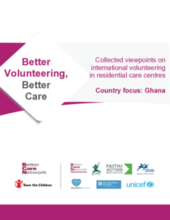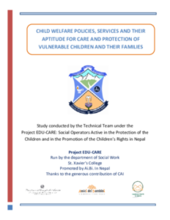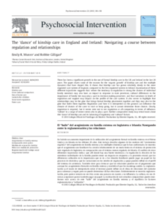Displaying 441 - 450 of 691
This country care review includes the care related Concluding Observations adopted by the Committee on the Rights of the Child as part of its examination of the second periodic report of the Holy See under Convention on the Rights of the Child at its sixty-fifth Session (13 Jan 2014 - 31 Jan 2014).
Infant Mental Health Journal has published an important Special Issue on Global Research, Practice, and Policy Issues in the Care of Infants and Young Children at Risk. This article documents an initiative to establish a replicable professional model that would direct the child welfare system in the Nizhny Novgorod Region away from institutional care and toward services for young children and their families that reduce the risk of institutionalization.
This policy brief reviews the legal framework for foster care in India, including an analysis of the current provisions of foster care along with the rules and schemes on foster care framed by states in India, with a focus on Delhi and Goa.
The Kinnected program, developed by the Australian Christian Churches International (ACCI), is working toward the reduction of use of residential care of children and aims to assist children within the context of their families. This document provides an outline of the program and an overview of the lessons learnt.
This overview is intended to contribute to discussions on international volunteering in residential care centres as an anecdotal research piece on the situation in Ghana.
This report is based on a synthesis of eight assessments of the implementation of the Guidelines for the Alternative Care of Children (“the Guidelines”) in Benin, Gambia, Kenya, Malawi, Tanzania, Togo, Zambia and Zimbabwe.
The Technical Team under the Project “EDU-CARE: Social Operators Active in the Protection of the Children and in the Promotion of the Children’s Rights in Nepal” reports on the child care practices, policies, and programs currently in effect in the country.
This article closes a special edition focused on the state of child protection in 16 countries chosen to represent very different cultural contexts, historical backgrounds, and social welfare systems with special attention to out-of-home care placements, principally family foster care and residential care, though several aspects related to adoption were included as well.
This article reviews the history and development of out-of-home care services in Germany and the Netherlands comparing trends and numbers.
There has been a significant growth in the use of formal kinship care in the UK and Ireland in the last 20 years. The paper charts some of the reasons for the 'organic growth' of kinship care and the multiple dynamics that have shaped this.


